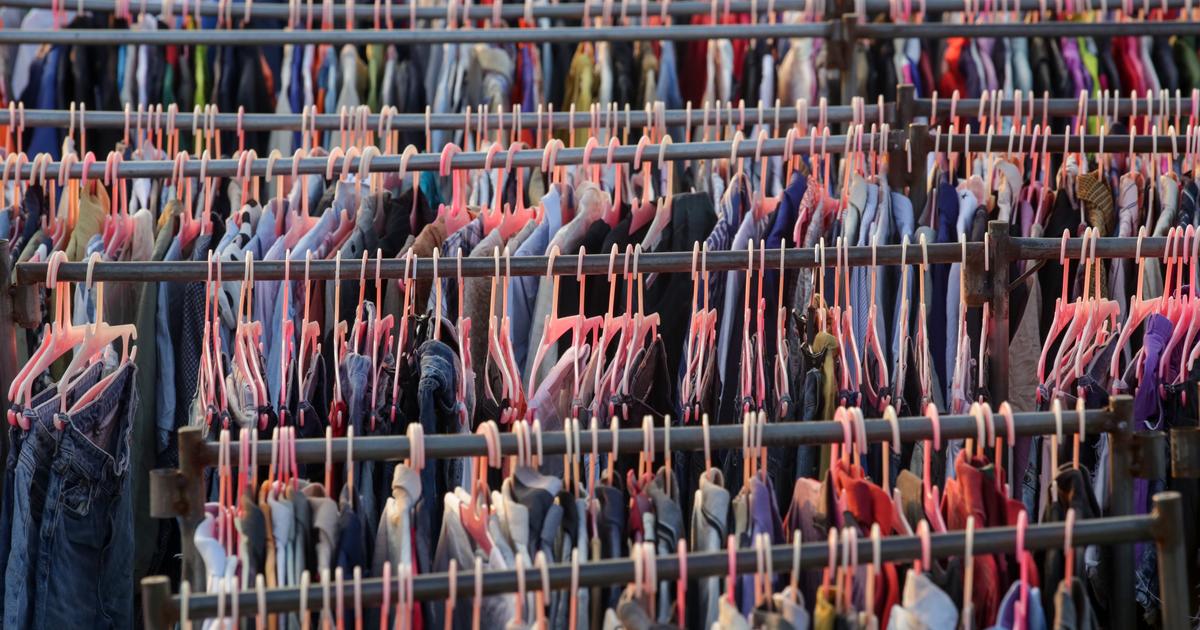Haro on fast fashion: MPs are looking this Thursday at measures aimed at curbing
“
fast fashion
”
, with an environmental
“
penalty
”
and a ban on advertising for the sale of these clothes at knockdown prices, most often imported .
The bill will be the second text examined in the hemicycle during the day reserved for Horizons, one of the three groups of the presidential majority.
Supported by the government, it was validated in committee in a climate of rare agreement.
In a context of declining purchasing power, the flooding of the market with inexpensive and constantly renewed clothing has shaken the sector, where store closures and legal receiverships are increasing.
But it is the environmental angle that the text of Horizons MP Anne-Cécile Violland highlights:
“The textile industry is the most polluting, it represents 10% of greenhouse gas emissions and if we do not nothing, we will reach 26% in 2050
,” she argues.
With in the viewfinder, practices pushed to their climax by the emblematic Chinese company Shein, and its
“7,200 new clothing models per day”
on average.
The bill plans in particular to strengthen an existing
“
bonus-malus
”
system in the textile sector, to take into account the
“environmental costs”
of excessive production.
Also read: Shein, Primark, Temu... How MPs want to tackle ultra-fast fashion
Penalty of up to ten euros per product
The penalty, to be set by decree, could reach up to ten euros per product in 2030, with a ceiling of 50% of the sales price.
“It is not a tax”
, insists Anne-Cécile Violland, the penalties having to be redistributed in particular in favor of producers of sustainable clothing.
The other flagship measure is the
“ban on advertising for
fast fashion products and companies”, customary with aggressive marketing pushing for overconsumption.
It is supported by all groups except the Republicans (LR).
“If you ban advertising in the field of fashion, you are in fact banning the market
,” believes LR MP Antoine Vermorel-Marques.
Despite the generally consensual nature of the text, MEPs should debate at length the definition of
“
fast fashion
”
.
The text retains a criterion based on the volumes produced and the speed of renewal of collections, but refers to a decree to set the thresholds.
“The devil is in the decrees
,” smiles LFI MP Alma Dufour, who, like elected officials from all sides, pleads for thresholds to be included in the law, and for the targeted actors to be better identified.
“Historic opportunity”
The “
Stop Fast Fashion
”
coalition of NGOs calls for a
“historic opportunity”
not to be missed
.
And to target
“all brands that offer more than 5,000 models per year”
and all online sales platforms.
It is
“not to penalize only Shein or Temu but also brands like Zara, Primark, H&M or Action as well as platforms like Amazon”
, argue these NGOs (including Les Amis de la Terre, Emmaüs France or France Nature Environment).
For the Chinese giant Shein, this text
“disproportionately penalizes the most cost-conscious consumers”
and
“does not address the issue of environmental impact”
.
According to a spokesperson, the number of references
“is not a relevant indicator”
to define
“
fast fashion
”
rather linked to the scale of unsold items, the brand saying it produces
“on demand”
.
For its part, the Swedish H&M, contacted by AFP,
“welcomes the spirit of the law”
while inviting MPs to base their measures
“on clear criteria, based on science and market practices”
.
And to take into account projects already
“in progress”
, such as the harmonization of practices at European level.
In France, the Alliance du Commerce, which brings together department stores, has expressed reservations about basing the
"
penalty
"
on
the "environmental display"
of products, a new method of rating products which must be implemented implemented.
Its general director, Yohann Petiot, told AFP that he feared that the text
would “miss its target”
by impacting national companies rather than
“ultra fast fashion”
.

